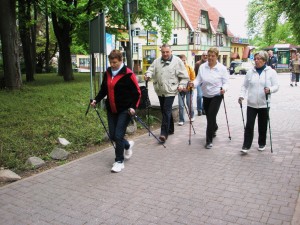
Don’t be alarmed by reports of a coming dementia tsunami, or forecasts that one in three people born this year will have dementia as adults. It’s not going to happen. An article on 20 August ’15 in the Lancet reported the findings of a study by Cambridge Public Health Institute showed that the number of people diagnosed with dementia is dropping in developed countries, including the UK.
The Cambridge findings confirms major studies presented in June 2014 at an international conference in Copenhagen. See http://www.alzheimers.org.uk/site/scripts/press_article.php?pressReleaseID=1156.
The lead author of the Cambridge research, Professor Carol Brayne, says that despite shocking statistics published in the media, they found no evidence that supported headlines about dramatic increases. The number of patients is actually stabilizing in some western European countries, including the UK. The data and figures typically cited for the proportion of people with dementia are based on projections calculated in the 1980s that proved not to be accurate. Yet the NHS and other health and social care bodies continue to quote them and source them into health care plans.
I asked a GP who happens to be an excellent statistician and has been tracking the debate for some years why the alarming figures are still being used, when the bodies using them know them to be untrue. He thought that to publish the real figures showing that dementia is decreasing would take the energy out of their campaigns.
Cambridge’s Professor Carol Brayne says that the shocking figures currently being published may be down to more than shoddy research. She said, ‘The reality is that healthcare and pharmaceutical companies are looking at large potential profits from future dementia interventions. It makes sense for them to play up the possibility of avoiding conditions associated with ageing, both now and in future. It would be particularly lucrative for them to be able to recommend specific medications for younger people who had been found to have a higher risk of developing dementia later in life. Such treatments could enjoy far wider demand than a specific targeted cure for the smaller group who are already developing the condition.’

It might also explain the pressure on GPs to send patients to Memory Clinics for early diagnosis, even knowing that numbers of misdiagnoses at that stage are high, and the effect on patients of being ‘labelled’ as being ‘pre-dementia.’ (Especially when, as a survey by the Royal College of General Practitioners recently showed, tailored care and support is not available for 70 percent of people with dementia diagnoses.)
Besides, along with many other leading studies, the Cambridge report points out that while early detection and screening and treatment ‘have their place, upstream primary prevention has the largest effect on reduction of later dementia occurrence and disability.’ Better lifestyles, in other words – exercise, staying socially connected with good emotional wellbeing (reducing stress and negative emotions); a sensible diet and good life balance including sleeping patterns. It’s been shown to be true here in South Wales, with the 25 year Caerphilly Study mentioned earlier on this blog. And there are so many more.
Read the Lancet article here:
Surely, the fact that the numbers are dropping is cause for celebration, not obfuscation and scaring? Don’t we all need to know that we can do things, as they did in Caerphilly, to push dementia back and enjoy a good old age?















